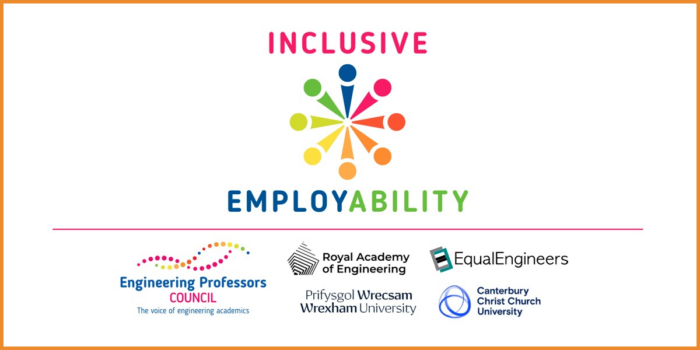Creating a new breed of ‘supergrads’
When it comes to new approaches to education, what happens in engineering is the canary in the mine.
Along with medicine no discipline more clearly confronts the questions that the whole sector is now facing about the right balance between learning by doing, and learning by understanding. So everybody in higher education should take notice of the current debate in engineering about degree apprenticeships – and the extent to which they could (or should) be a game-changer.
There’s a well-documented shortfall of engineering graduates, a shortage of engineering and technical skills, and many employers tell us that graduates are not job-ready. So why aren’t we more excited about degree apprenticeships?
This is the theme of a landmark report published today by the Engineering Professors’ Council (EPC), the voice of engineering academics in the UK, representing 7,500 individuals in more than 80 universities.
Employer-led, not employer-dominated
The report states that in order to make degree apprenticeships in engineering a success, we must work collaboratively to put apprentices at the heart of the debate, and make an honest and reflective appraisal of what works and what doesn’t. We also need to convince policymakers that apprenticeships are not currently going according to plan, but that it’s not too late to make the changes required to make them attractive to school leavers and employers.
We have arrived at a system where degree apprenticeships are intended to be “employer-led” but instead they often become “employer-dominated”, failing to focus on apprentices’ wider learning needs and long-term goals. In an honest desire to ensure the relevance of apprenticeships, the system may have overlooked what we have already learnt about learning. We need to pool the understanding of academics and of industry to create degree apprenticeships that appeal to prospective apprentices and provide them, as well as employers, with what they need. Degree apprenticeships must be partnerships between employers, providers and apprentices themselves – there is no room for silo cultures here.
Failing brand
What’s more, the complexity of the apprenticeship system – coupled with ambiguous messaging and poor branding – is a barrier to potential apprentices, parents and employers – particularly smaller firms. We need a centralised approach to raising awareness among prospective degree apprentices, providing information about options and practicalities. Early intervention outreach must be coordinated, evidence-based and properly funded. And government should relax the rules around the apprenticeship levy to allow some of an estimated £1.28 billion of unspent funds to be used to improve careers advice and to promote degree apprenticeships.
But there is still the challenge that degree apprenticeships outputs are themselves ambiguous. The idea of promoting a broad appreciation of the benefits of degree apprenticeships in the current climate is baffling; apprentices’ rights to professional recognition, continued employment and a degree must become clearly navigable in order to move forward.
EPC calls for change
Today’s EPC report, Experience Enhanced, is the collective perspective of the UK’s engineering academic community, the culmination of a two-year project to assess policy and practice around degree apprenticeships. It highlights nearly 50 recommendations spanning four areas: ensuring the best possible learning experience and outcomes for apprentices; the need for closer collaboration between employers and learning providers like universities; the importance of building recognition as a professional engineer into the pathways of apprenticeships; and the financial sustainability of degree apprenticeships.
Degree apprenticeships might not be the silver bullet for all recruitment challenges where there’s a skills deficit, but they do bring the rigours of academic learning and knowledge together with the practical skills and behaviours of the workplace – a new breed of “supergrads”?




